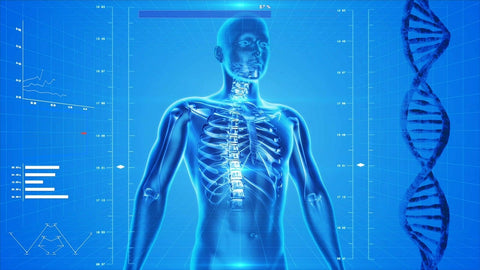
The Science Behind Epigenetics: Unlocking Your Body’s True Potential
Epigenetics is a groundbreaking field of science that studies how your environment and lifestyle choices can influence your genes without changing your DNA sequence. Unlike genetic changes, which are permanent, epigenetic modifications are reversible, giving you the power to impact your health and aging in profound ways.
What Is Epigenetics?
Your DNA acts as the blueprint for your body, but not all genes are "turned on" at the same time. Epigenetics refers to the mechanisms that control which genes are activated or silenced. One of the most studied processes is DNA methylation, where chemical tags are added to your DNA, affecting gene expression.
For example, epigenetics can determine whether genes linked to inflammation, metabolism, or aging are active. This process influences everything from how well you age to your risk for chronic diseases.
How Epigenetics Shapes Your Health
Epigenetic changes are influenced by factors such as:
- Diet: Nutrients in your food can activate or suppress genes. For example, folate and vitamin B12 support healthy methylation processes.
- Exercise: Physical activity promotes positive epigenetic changes that improve metabolism and reduce disease risk.
- Stress: Chronic stress can negatively impact gene expression, accelerating aging and disease development.
- Environmental Toxins: Exposure to pollutants can trigger harmful epigenetic changes.
The Power of Epigenetic Testing
Advanced epigenetic testing uses DNA methylation patterns to reveal insights into your biological age, health risks, and areas for improvement. Unlike genetic testing, which identifies predispositions, epigenetic testing reflects your current state of health and how your choices have shaped your body.
Key Benefits of Epigenetic Testing
- Personalized Insights: Learn how your body responds to specific foods, exercises, and lifestyle factors.
- Proactive Health Management: Discover potential health risks early and make changes to prevent them.
- Monitor Progress: Track how your lifestyle interventions positively affect your epigenetic profile over time.
Case Study: Rewriting Your Epigenetic Story
John, a 50-year-old father, learned through epigenetic testing that his biological age was 58. With tailored recommendations, he incorporated a Mediterranean diet, daily walks, and stress management techniques into his routine. Six months later, his biological age had decreased to 51, improving his energy levels and overall health.
Unlock Your Body’s True Potential
The science of epigenetics puts your health and aging process in your hands. By understanding and influencing your epigenome, you can unlock a healthier, younger, and more resilient version of yourself.
Where to Begin
Start by taking an epigenetic test to discover your biological age and health profile. From there, work with experts to create a personalized wellness plan designed to optimize your unique genetic potential.
